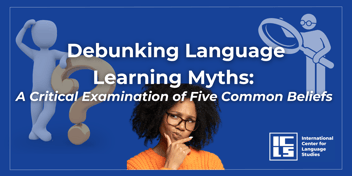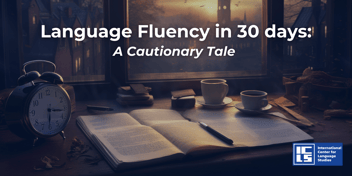Are Musicians Better Language Learners? (They Don’t Know It Yet)
At the start of 2020, I met an intriguing woman at a meditation retreat in Los Angeles.
Her style, her look, her accent, captivated me. Her accent felt a pinch latin, a dash southern with a distinct twang that I couldn't place. I mustered up the courage to introduce myself to her. Daniela, the mystery woman, is a Brazilian living in Australia — her style, her look, her accent all uniquely her own began to take shape the more I got to know her — now, we live in Australia together and we're on a language journey that I never thought I'd be on.
 As I got to know Daniela, I began to notice new shades of her personality when she spoke with friends and family in Brazil. Though always a firecracker, her sassiness and sense of humor sparkled when she spoke in her native tongue. “You know” she would tell me… “I’m actually a funny person in Portuguese!”
As I got to know Daniela, I began to notice new shades of her personality when she spoke with friends and family in Brazil. Though always a firecracker, her sassiness and sense of humor sparkled when she spoke in her native tongue. “You know” she would tell me… “I’m actually a funny person in Portuguese!”
I found it cute when she would joke in English, often thinking that her attempt at a pun was funnier than the pun itself. Though in Portuguese, her wit soared; when she spoke she commanded the room, leaving people on the edge of their seats, hanging on to every word, laughing at all the right times.
I found myself filled with a familiar sense of wonder – who is this woman? In order to truly understand the depths of Daniela, I needed to know her language.
Before I started learning Portuguese, I never thought of myself as someone “good at languages,” especially at learning a language as an adult. I’m a songwriter and performer — music has always been my way of connecting with people, not grammar books or vocabulary drills. But the deeper I get into learning a new language, the more I realize something surprising:
Musicians are actually built to become language learners.
We just don’t always know it.
When you play music, you’re already tuning your ear to sounds, memorizing patterns, and expressing ideas and emotion through sound — which is also language in a nutshell. If you’ve ever learned a song by ear, figured out how to sing harmony, or matched the tone of one of your favorite musicians, then you have already been preparing your brain for language learning.
In fact, when I converse with native Portuguese speakers, there is one thing I am consistently told — “Jameez, (Brazilians often pronounce James as Jaymeez) your pronunciation is REALLY good!”
I credit this to having a musical ear and background.
Here’s a few reasons I think musicians have a leg up:
Musicians are used to listening for nuance.
Musicians have a keen ear for detail — timing, tone, phrasing. This focus helps when learning how to pronounce new words or catch subtle differences in meaning. In choral music for example, the pronunciation of each vowel sound makes a world of difference. If one singer pronunciates a vowel different from the rest of the choir then the sonic blend is thrown off. Similarly, in language, each sound can make a world of difference. I’ll never forget the day my partner (a Brazilian) told me to “cut the cheese” in front of my family. What she meant to say was “cut to the chase!”
Musicians think in rhythm and patterns.
 Languages have rhythm, flow, and form — just like music. I see conversation in a similar light to improvisational music. As a musician, when I listen to people converse the first thing I notice is tonal interplay. Just as the drummer may mimic the rhythm and dynamics of a saxophonist in a free jazz solo, when people converse they match and exchange tones — the way tone is expressed can carry just as much meaning as the word itself! I was once conversing with Daniela’s family about Taylor Swift (a polarizing topic, I know), and as the conversation piqued everyone’s tempo and dynamic of speech increased in volume and percussiveness. When they offered the possibility of going to a Swift concert in Rio I exclaimed “estou exitado!”, to which everyone burst out in laughter. While I was trying to say “I’m excited!” another kind of excitement was interpreted. Thankfully they forgave me and taught me the correct word for innocent excitement — “animado”.
Languages have rhythm, flow, and form — just like music. I see conversation in a similar light to improvisational music. As a musician, when I listen to people converse the first thing I notice is tonal interplay. Just as the drummer may mimic the rhythm and dynamics of a saxophonist in a free jazz solo, when people converse they match and exchange tones — the way tone is expressed can carry just as much meaning as the word itself! I was once conversing with Daniela’s family about Taylor Swift (a polarizing topic, I know), and as the conversation piqued everyone’s tempo and dynamic of speech increased in volume and percussiveness. When they offered the possibility of going to a Swift concert in Rio I exclaimed “estou exitado!”, to which everyone burst out in laughter. While I was trying to say “I’m excited!” another kind of excitement was interpreted. Thankfully they forgave me and taught me the correct word for innocent excitement — “animado”.
Musicians understand practice and theory
Musicians also understand the balance between practice and theory. We know that behind every great performance is a foundation of structure — scales, keys, time signatures. Just like there are certain notes that fit within a key, language has its own set of rules — grammar, sentence structure, verb conjugations. It’s not always the most exciting part, but we know it matters to achieve language fluency. And we also know that once you internalize the rules, you can start to play with them — to improvise, express, and find your own voice. That mindset transfers beautifully to become learners of a new language.
For me, learning Portuguese has added a whole new dimension to my personal and creative life. It’s helping me connect more deeply with Brazilian music and culture, while deepening my relationship with my partner. Understanding the music and language in which Daniela learned to think, helps me understand her.
If you’re a musician who’s ever dreamed about learning a new language, I honestly think you’ve got a head start on the journey. I’ve been learning with the International School for Language Studies, and they’ve made it super approachable and engaging — plus they understand how to teach through sound and rhythm, which makes a huge difference. If you’re curious, definitely check them out.
by James Davy


